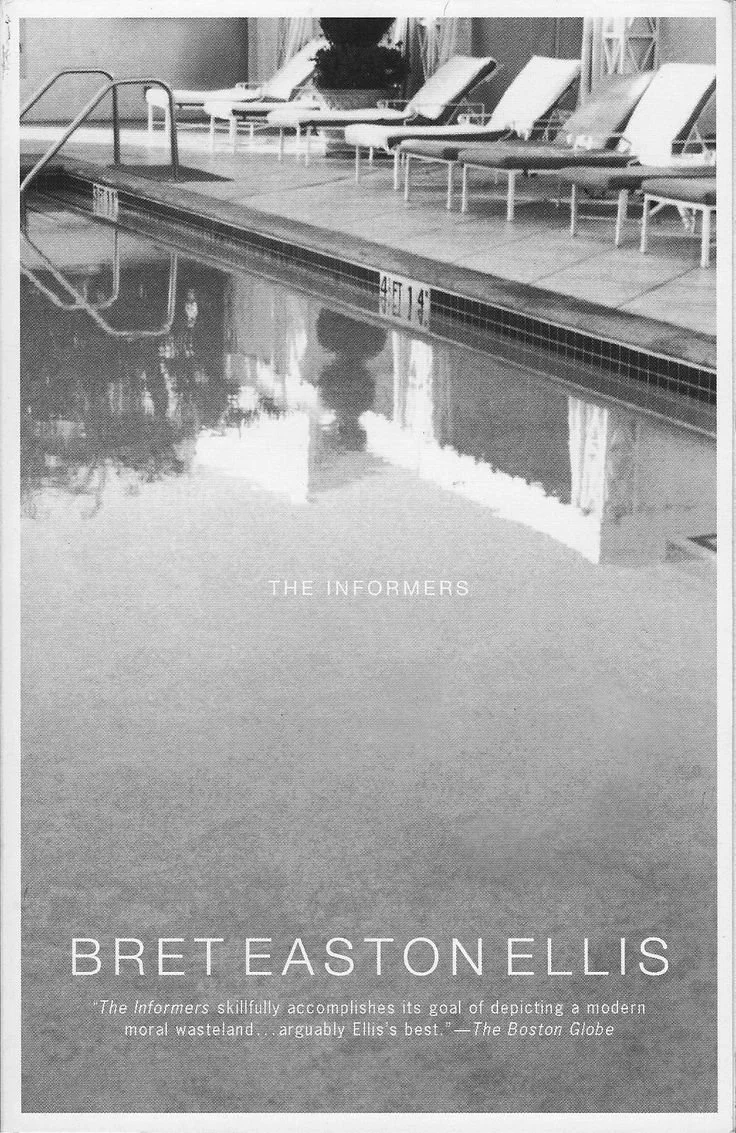Book Review : Bret Easton Ellis - The Rules of Attraction (1987)
Bret Easton Ellis had unmasked the end of the American Dream before anyone else. His debut novel Less Than Zero painted a portrait of a privileged youth that was struggling with a problem that is still not completely accepted today: when you don’t have to work for anything in your life, you get depressed because you don’t know what to do with yourself. This idea is also at the center of his sophomore effort The Rules of Attraction and I'd argue it's even more pertinent today than it was then.
The Rules of Attraction doesn't have a protagonist to speak of. It is narrated from the point of view of primarily three students at a fictional east coast private college: the pathologically irresponsible Sean Bateman (younger brother of you-know-who), the depressed beauty queen Lauren Hynde and newly out of the closet Paul Denton. The novel doesn't have a plot. Not in the conventional sense of the term. It explores the debauchery and pointlessness of young, privileged people's existence in the eighties instead.
The parasitic twins of narcissism and emptiness
Although The Rules of Attraction is very much an ideological sequel to Less Than Zero, it is considerably darker. The main different lies in the tone it employs because there is no soulful, heartbroken narrator like Less Than Zero's Clay. Funny enough, Clay makes an appearance in this novel. He narrates a chapter and another scene set in a literature class where he shows that he actually gives a shit about he's read. I suspect that Clay is very much a fictional embodiment of the author himself.
But The Rules of Attraction is not about the kids who give a shit. It's about those who don't and the student on Camden who wants to study the least is Sean Bateman. He's one of Bret Easton Ellis' most fascinating creation. Elusive, slippery, rude, he navigates his environment by revealing as little about himself as possible and existing almost entirely within other people's emotional paradigms: he is Lauren's underwhelming lover, Paul's sexy little secret, an anonymous girl's fantasy, etc. He is everyone and no one.
Now Sean isn't a genius by any means. He's a dim-witted sociopath. But his pathological avoidance of his own best interest raises an interesting question: does the emptiness causes the narcissism or does the narcissism cause the emptiness? Is Sean the way he is because whatever he might do won't impact his future or is does that fact emboldens him into being the way he is. Is he desperate or not? Although he acts desperate in The Rules of Attraction, Brett Easton Ellis never really takes a stance on Sean's behavior.
The one thing Sean seems to cling to is his relationship to Lauren, which is the only way he projects himself into the future. Although he's the furthest thing from a basic dude, Sean embraces an ultra basic vision of life with her: getting married, settle down, having kids, giving up on the debauchery thing. His attempts at conveying his distress are often clumsy and funny, but ooze with pathos nonetheless. It’s what makes him such a great character. He doesn't have an emotional center, so he depends on yours.
What really happened doesn't matter
Another fun underlying theme of The Rules of Attraction is the importance of memory in the shaping of one's identity. There are three main protagonist in the novel, but fourteen characters in all who narrate at least a chapter and none of their version of what happened on campus fully matches one another. So, it's impossible for the reader to know what really happened, what someone claimed happened, what was wrongly interpreted, what was imagined and whatnot. It doesn't really matter anyway.
This inescapable uncertainty is best represented to the dual account of Paul and Sean's friendship. One claims they had a sexual relationship as the other doesn't even mention it. Is Paul simply fantasizing about sleeping with Sean? Is Sean so fucking vain and idiotic that he doesn't even want to admit this relationship to himself? That tension is what makes their relationship interesting, but also what defines the two character. It's more interesting never to know the truth, because it's how Paul and Sean perceive things.
These beliefs about what happened are at the core of their identity. Another situation where what actually happened isn't important is with Sean's secret admirer. Sean believes her to be Lauren (spoiler: she's not) and from that moment, he's convinced that she's the one who feels true, pure feelings about her and decides to pursue a relationship. What actually happened isn't important at all. Whether in The Rules of Attraction or in real life. What we think happened is what's going to dictate what happens next.
*
If you enjoyed Less Than Zero, The Rules of Attraction is a logical follow-up. It's darker, more hopeless and chaotic and yet it's alive with pain and fear and uncertainty and shitload of other uncomfortable feelings. It won't be everybody's cup of tea, but I fucking love a good book that keeps me on my toes. Bret Easton Ellis has become a polarizing dude with the rise of the ideological divide in society, but is he really writing in bad faith or do we simply think we’re about the terminal narcissism of his characters?






